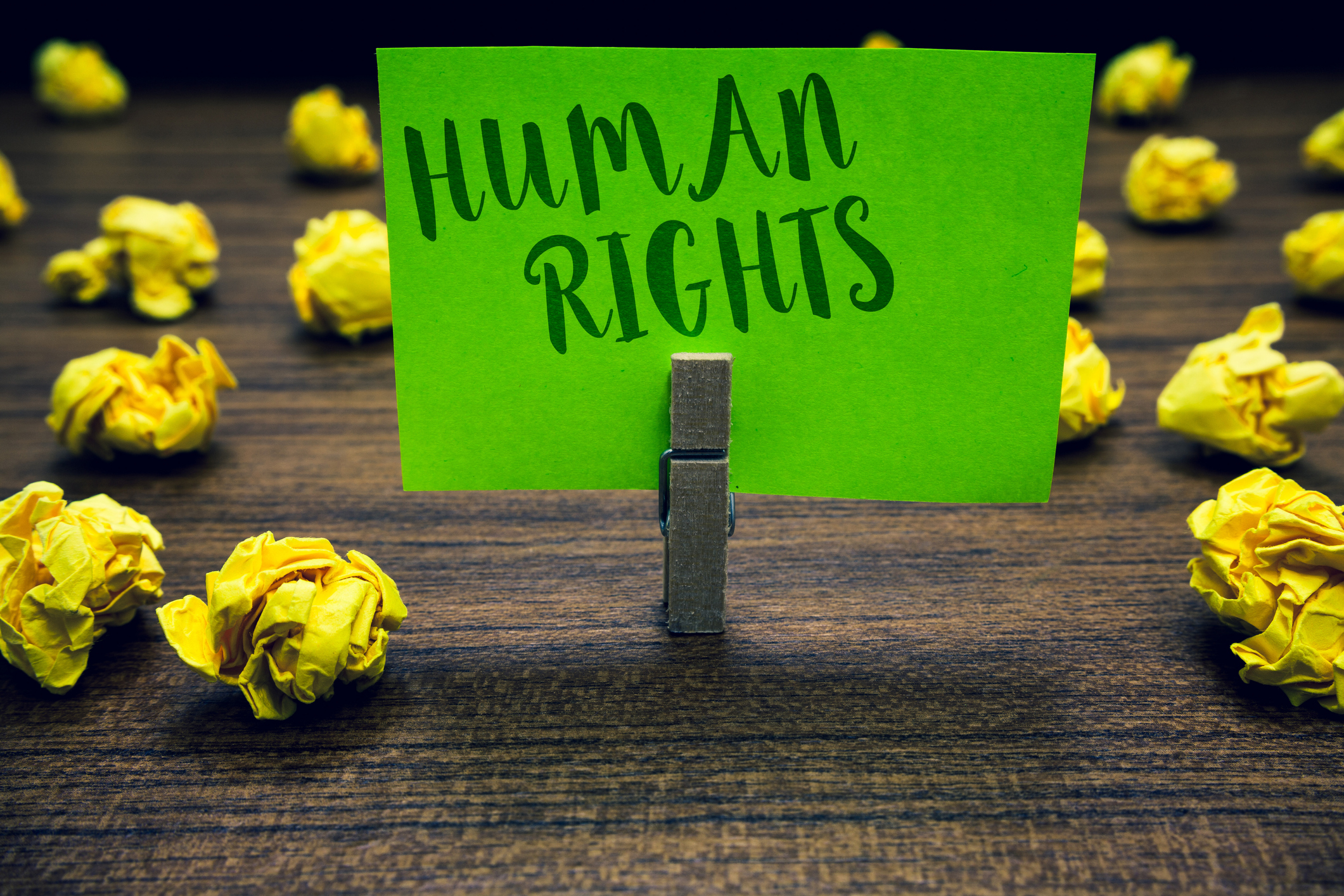“Your moral convictions are yours. I shouldn’t have to live by them.”
“Your religious beliefs shouldn’t be the law.”
“You shouldn’t try to legislate your morality.”
Do these comments sound familiar to you?
I often hear statements like these when discussing my political views with someone who doesn’t have a Christian worldview. And it always surprises my secular friends to find out that I agree with them. Completely.
The fact that I consider a moral conviction to be God-inspired or self-evident doesn’t mean that I should force that conviction on someone else. And the fact that something is considered to be morally wrong in the Bible does not mean that it should be criminal.
How do we determine which Scriptural prohibitions should be legislated and which should not?
The answer isn’t as complicated as you might think. There are some key factors that we must consider when determining which biblical wrongs should be legal, and which shouldn’t.
Many Moral Wrongs in the Bible Aren’t Civil Wrongs
People often fail to note that there are many prohibitions in Scripture that Christians would never legislate today.
Adultery is a moral wrong, but I don’t know any religious people suggesting that it should be illegal—at least not in the Christian faith. Drunkenness, lying, gossip, and gluttony are also moral wrongs in Scripture that should not be criminalized.
(That last one is fortunate or else they’d be loading up the paddy-wagon at the next Baptist potluck.)
But people also fail to note that there are many prohibitions in Scripture which nearly everyone, whether Christian or not, believes should be legislated.
Most religious and non-religious people agree with the eighth commandment that it is immoral to steal. Not only is it immoral—it should be criminal.
Most people agree with Scripture that rape and incest are morally wrong and these actions should be criminal. (Deut. 22:25-27, 27:22)
Most people agree with the sixth commandment that it is wrong to murder—and yet no one is accused of trying to “legislate morality” or a religious conviction when insisting that theft, rape, incest, and murder should be criminal. No one objects to these biblical bans being legislated.
What is the difference between these moral prohibitions?
What causes some Scripturally immoral actions to hit a criminal trip wire that others don’t?
The answer is simple, and it is civil.
Theft, rape, incest, and murder are all condemned in Scripture as moral wrongs, but they are condemned in society because they without question harm another human being. So, these moral wrongs must have a civil consequence, not just a personal one.
Adultery between consenting adults is a great moral wrong, and it does hurt many people, but it is not (in physical terms) a violation of another person’s human rights, unless injury is proven in court. So the consequences for this Scriptural prohibition must remain in the personal realm.
Likewise, lying, gossip, gluttony, and drunkenness are also condemned in the Bible, but they are not civil wrongs that threaten the life or liberty of another human being—so I don't know any Christians who believe these sinful behaviors should be criminal.
On the other hand, it is true (and should be) that if while committing these wrongs, you do injure another human being, it is then a criminal offense within our legal system, or a complaint taken up in court.
However, Christians are not trying make every immoral action illegal.
Some Moral Wrongs Threaten Society and Should Be Criminal
Drunkenness, however, is a perfect example of a moral wrong according to Scripture that isn’t a civil wrong in and of itself—but it can become one. That transition occurs when a drunk person gets behind the wheel of a car. A drunk driver threatens to assault another person with their vehicle and cause great bodily harm, even death. They threaten another human being’s right to life.
So, while it is morally wrong to be drunk according to Scripture, it is not a civil wrong until a drunk person decides to drive.
That is when a moral wrong hits the tripwire causing it to become criminal: the moral wrong has become destructive to others. When an immoral action violates another person’s human rights, it is, in most cases, illegal.
Theft, rape, incest, and murder are also moral wrongs that violate another person’s human rights, and they are against the law.
Everyone agrees with these standards in Scripture.
Everyone wants to legislate these moral convictions.
And yet, no one is accused of “legislating morality” when it comes to these religious prohibitions.
This is, at best, inconsistent.
It is obvious that the real objection isn’t to legislating biblical morality because society agrees to legislate many Scripturally moral positions.
Aren’t We Already Legislating Morality?
The great irony, of course, is that we are always legislating someone’s morality. The very idea of legislation requires a standard of right and wrong. It requires someone’s moral code. It requires someone, or rather a lot of elected someones, to say, “Here’s a line. It’s wrong to cross it—so don’t.”
The only way to escape legislating morality is to not legislate at all.
That’s because laws are inherently moral. They are a statement of what a society considers to be correct or ethical behavior. You simply cannot escape legislating morality.
And yet, Christians are the only people criticized for “legislating morality.” This inconsistency begs a very important question:
Why is it more correct to legislate a secular morality than a God-centered morality?
Answer:
It isn’t. It may be more politically correct, but it’s not more correct.
The idea that morality is purer when it comes from a secular source than from an ancient religious text that revolutionized western civilization just doesn’t seem rational, to me.
And one could actually argue that there are no original ideas left, just the Originator of ideas. Whether your moral compass is informed by Hammurabi or Homer, Socrates or Nietzsche, Karl Marx, Oprah, or Dr. Seuss, we are all borrowing ideas that have been borrowed before.
Our sense of morality is not purely our own. It comes from somewhere.
Unfortunately, these other sources are equal opportunity influencers in the game of morality—but not the Bible. Whenever a controversial Scriptural foundation is associated with a political position or a piece of legislation, it seems as though a societal referee blows a whistle, throws a flag, and yells—“Penalty! The defense tried to legislate morality. They’re out-a here!”
Never mind that we’ve been legislating morality all along. Never mind that another team is legislating morality right now. Never mind that the person you are speaking to wants to legislate their own morality.
The next time someone objects to “legislating morality” in a discussion, know that they object to legislating your morality, not theirs. Know that they want to impose a different kind of morality. With the peace and patience of the Holy Spirit guiding you, call attention to this inconsistency.
Jesus pointed out the logical inconsistencies in his culture. We can do the same in ours.
 Photo Credit: ©GettyImages/Andrii Yalanskyi
Photo Credit: ©GettyImages/Andrii Yalanskyi
What Happens When Moralities Collide?
Inevitably, since everyone is trying to legislate their own personal moral convictions influenced by a myriad of secular and sacred sources, this puts people’s respective moralities on a course to collide. Opposing moralities cannot peacefully coincide in society—this morality claims this right and that morality claims that right.
For example, with abortion, where the “legislating morality” claim is pinned on the religious more than any other issue, the unborn’s right to life and the woman’s right to privacy square off.
Andrea Young, executive director of the ACLU of Georgia, highlights this clash of competing rights in a recent article by the Atlanta Journal Constitution:
“Anti-abortion activists for years have tried to legally establish the ‘personhood’ of a fetus, which could grant rights to the unborn as early as conception. The activists say after America has slowly granted rights to groups of people over the years—whether it be counting black people as citizens or allowing women to vote—extending those rights to a fetus is the next natural step.
But ACLU of Georgia Executive Director Andrea Young said that argument falls apart when granting rights to one group strips the rights of another... ‘There’s no way to advance the argument that they are making about a fertilized egg without doing away with the rights that women have to determine their own lives,’ Young said. ‘That distinguishes this from any of the other examples they’re giving’.”
Granting rights to the unborn—from the fertilized egg (mentioned) to the fully formed 40-plus-week-old child in utero (conveniently not mentioned)—would seem the next logical step after granting rights to those marginalized by race or sex. Young, however, claims that the extension of such rights to the unborn is different from the extension of rights to black people and women.
Why?
Because extending rights to the unborn denies rights to women.
The Rights of One Group Can Limit the Rights of Another Group
And yet, a slave owner’s right to possess what they defined as “property” denied a human’s right to freedom.
A male supremacist’s right to exclusively govern society without the input of women denied a woman a right to vote.
Granting rights to marginalized people groups did, in Young’s words, deny slave owners and male supremacists the right “to determine their own lives.”
And rightfully so. Those rights should be denied because they harmed people.
Why Can’t the Same Logic Apply to Unborn Children?
It’s a question that must be asked.
The very argument that Young claims is what distinguishes this issue from these other examples, is actually yet another argument that makes it the same.
What Young and many others fail to recognize is that the government has always been in the business of prioritizing and limiting rights. And the government hasn’t always prioritized these competing rights in a way that serves everyone’s best interests.
Thankfully, our government righted these wrongs with the 14th and 19th amendments.
Personal rights are limited for the common good all the time. Courtrooms are filled with competing groups who have competing rights. LGBTQ rights square off with religious rights. The rights of business owners square off with the rights of employees and customers.
Life and liberty should be friends, but sometimes they end up in a fistfight.
When they do, who should win?
The answer to that question depends on whose morality you want to legislate.
That is the debate we should be having.
So, let’s stop debating whether it’s right to legislate morality and recognize that we are always legislating morality.
Then, let’s ask whose morality.
 Photo Credit: GettyImages/Artur
Photo Credit: GettyImages/Artur
Whose Morality Best Preserves the Rights of All People?
Abortion activists claim that the rights of women to “determine their own lives” trump the unborn’s right to have a life.
Moralities collide and individual rights square off—they always have, and they always will. Life and liberty will duke it out.
When they do, the strongest argument resides on the side of life. And while that doesn’t have to be a religious argument—in fact, it shouldn’t be if we want to convince people who don’t share our Christian worldview—it must be a moral argument.
Preserving life will require the sacrifice of some liberties.
If a personal liberty deprives someone else of the most sacred right of all, the right first to live and then to live freely, that liberty has become a weapon. And that liberty must be forfeited for the good of all.
This is a moral position that protects more than just Christians. This is a moral position that protects everyone.
Some Helpful Tips for More Fruitful Political Discussions:
When engaging in a political discussion with a non-believer or a Christian who believes differently than you, remember:
- All legislation is moral as it affirms someone’s morality.
- There are many Scriptural prohibitions that Christians don’t want to legislate.
- There are many Scriptural prohibitions that non-Christians do want to legislate.
- Ask why morality derived from a secular source is more valid than morality derived from a sacred source.
- Our government is in the business of prioritizing rights.
- The individual rights of one group may limit the rights of another group.
- When moralities collide causing individual rights to square off, the right to live should come first, and then the right to live freely.
- As Christians, we want to legislate moral convictions that preserve first the life and then the liberty of every man, woman, and child.
So, to answer the original question—should we legislate morality?
Yes. We already are.
The question we should be asking is whose morality prioritizes life?
Photo Credit: ©GettyImages/Artisteer
 Catherine Segars is an award-winning actress and playwright—turned stay-at-home-mom—turned author, speaker, podcaster, and motherhood apologist. This homeschooling mama of five has a Master’s Degree in Communications and is host of Life Audio’s Christian Parent/Crazy World (named 2022 Best Kid’s and Family Podcast by Spark Media), a podcast that navigates through tough cultural and theological topics to help parents establish a sound Biblical foundation for their children. She is also an award-winning writer whose regular articles on family, faith, and culture reach hundreds of thousands of readers. You can find Catherine’s work at www.catherinesegars.com.
Catherine Segars is an award-winning actress and playwright—turned stay-at-home-mom—turned author, speaker, podcaster, and motherhood apologist. This homeschooling mama of five has a Master’s Degree in Communications and is host of Life Audio’s Christian Parent/Crazy World (named 2022 Best Kid’s and Family Podcast by Spark Media), a podcast that navigates through tough cultural and theological topics to help parents establish a sound Biblical foundation for their children. She is also an award-winning writer whose regular articles on family, faith, and culture reach hundreds of thousands of readers. You can find Catherine’s work at www.catherinesegars.com.
Listen to Catherine's FREE Christian Apologetics Podcast for Parents - Christian Parent, Crazy World, available now at LifeAudio.com!
